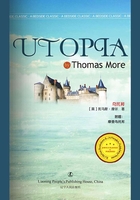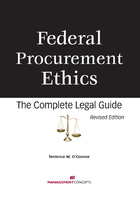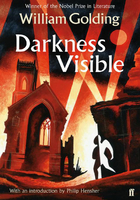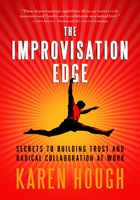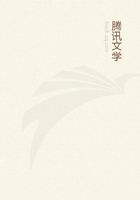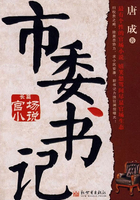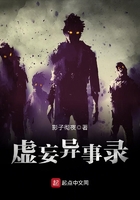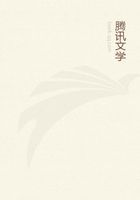Opening Our Eyes to How We Can End Poverty in Our Day
The future comes one day at a time.
-DEANACHESON,
AMERICAN STATESMAN
Can we end poverty in our day if each of us decides to act? Is it really possible? Every morning as we open our eyes, a new day beckons, full of possibility. It is unwritten history-what happens during the course of the day is ours to author. We created this book, and trust that you picked it up, because we not only care about poverty in our world but also believe that this is our day to end it. Together we have many new chapters to write.
This book doesn't give extended analyses or mountains of data relating to all the complex issues surrounding poverty. We expect that you already know enough about poverty that you too find it intolerable. What you will find here is what you can do, starting today, to help end the long night of extreme poverty that more than a billion people in our world now endure.
Some students asked a rabbi how we know when night is over. One asked, "Is it when it is light enough that you can see an animal and tell if it is a goat or a sheep?"
"No," he replied.
"Is it when you look in the distance and can distinguish a fig tree from an olive tree?" suggested another. "No," the rabbi answered. "We know the night has ended and the day has begun when we can look in the face of a stranger and recognize them as our brother or sister."
If we look in the face of others around the world and recognize them as our brothers and sisters, the night has indeed ended and a new day has begun-our day to end poverty. It is a good morning.
Opening Our Eyes
Once we wake up to global poverty, we see all kinds of connections. We see ourselves reflected in others half a world away. We see poverty around the world echoed in the United States. We see how the threads of poverty, health, education, and the environment are tightly interwoven. We see the relationships among how children grow, how women are treated, and how families fare.
Poverty is more than just a lack of money-it is a lack of opportunity, rights, and resources. It is created by ill health and poor or no health care, inadequate housing and transportation, illiteracy, and racial and gender discrimination. It can be affected by things as personal as one's actions and as uncontrollable as the weather. Poverty is caused by things as small as lacking a few dollars of credit and as large as war, national debt, and international trade policies. It is affected by things as immediate as access to clean water and as long range as the state of the environment. Poverty is influenced by things as pervasive as racism and sexism and as isolated as an accident or event in someone's life. As much as we might long for a simple explanation for poverty, or a single solution to end it, we must tackle it as the complex, interrelated challenge that it is.
But here's some good news: Just as the problems are interconnected, so too are the solutions. Solving one part of the problem can have a positive ripple effect. Consider water, for instance. By providing clean, accessible water to a family or village in sub-Saharan Africa, the women and children no longer spend hours lugging water from a distant source and are spared from many waterborne illnesses. As a result, they now have time and good health, so adults can generate income and children can learn. With accessible water, crops can be irrigated, which together with fertilizer and better seeds dramatically increases crop production. With more food, family members are no longer malnourished, are strengthened to stave off or recover from illness, and are better able to earn a living and prepare for the future. That one action of providing clean water is more than just a drop in the bucket; from it flow all sorts of lifesaving, poverty-ending benefits to individuals, families, villages, and ultimately the world.
Our generation is the first to have the resources, technology, and knowledge to end poverty. But it won't be easy. Eradicating poverty calls for a comprehensive approach that ensures every person has the rights, opportunities, and resources to secure an income and the necessary food, health care, education, clean water, housing, and transportation to move or stay out of poverty. Eliminating poverty calls for partnerships large and small to transform our environment, trade policies, and international development. Ending poverty calls for direct actions to ease immediate suffering and systemic change to implement long-term solutions. We will shape the end of poverty by how we use our resources close at hand and how we increase the resources of those far away. All we need is the will to act.
A Millennium Dream
In the year 2000, leaders from around the world gathered at the United Nations' Millennium Summit. They were drawn together by a vision of our world in 2015 in which extreme hunger and poverty are dramatically reduced, all children go to school, girls and women have equal chances, far fewer children die from preventable causes, and more mothers have healthy births and live to see their children grow up. They envisioned fewer people suffering from HIV/AIDS, malaria, and other diseases. They saw many more people with clean water and sanitation, the earth protected to support us all, and nations working in partnership so that all can develop and sustain sufficiency
This extraordinary vision-comprehensive, inclusive, and ambitious but actually achievable-was captured in a document they called the UN Millennium Declaration. Through it world leaders committed their nations to reaching the eight UN Millennium Development Goals that outline the broad vision and to establishing specific, time-bound, measurable targets to guide and assess our progress toward the goals.
UN Millennium Development Goals
Goal 1
Eradicate extreme hunger and poverty
While pursuing the ultimate goal of eradicating extreme hunger and poverty, the target for 2015 is to reduce by half the proportion of people whose income is less than $1 a day and the proportion of people who suffer from hunger.
Reflect for a moment on the power of the word eradicate, which means, literally, to tear out by the roots. The ultimate goal is not just to trim the most obvious manifestations of
poverty-which could grow back-but rather to get at the root causes and remove them so that poverty is a thing of the past, gone forever.
Currently 1 billion people live on less than $i a day.
Note that when "$1 a day" is used to measure global poverty (the official term is "us$i a day purchasing power parity"), it does not mean, as one might think, that people in other countries are living on what a U.S. dollar, converted into local currency, could buy-which might be a fair amount if local prices are low. It means that people are living on the equivalent of what a U.S. dollar could buy in the United States. Think about what a dollar could buy in the United States: say, half a pound of rice and a couple of bananas. That is what those living on $i a day have to survive on in their own countries.
Goal 2
Achieve universal primary education
Ensure that, by 2015, children everywhere, boys and girls alike, will be able to complete a full course of primary schooling.
Currently, 100 million children of primary school age are not in school.
Goal 3
Promote gender equality and empower women
Eliminate gender disparity in primary education, preferably by 2005, and in all levels of education no later than 2015.
About two-thirds of the worlds adult illiterate population are women, and in some regions nearly half of all women are reported to be illiterate, according to the UNESCO Institute for Statistics' latest literacy estimates.
Goal 4
Reduce child mortality
Reduce by two-thirds, between 1990 and 2015, the mortality rate among children under five.
Currently, twenty-eight thousand children die every day from largely preventable malnutrition and disease.
Goal 5
Improve maternal health
Reduce by three-quarters, between 1990 and 2015, the maternal mortality rate.
Currently five hundred thousand women die in childbirth each year.
Goal 6
Combat HIV/AIDS, malaria, and other diseases
By 2015 have halted and begun to reverse the spread of HIV/AIDS and the incidence of malaria and other major diseases.
At the end of 2006, approximately 39.5 million people worldwide were living with HIV/AIDS, 2.3 million of whom are children; Africa has 12 million AIDS orphans. Currently, at least 1 million deaths occur every year due to malaria.
Goal 7
Ensure environmental sustainability
Integrate the principles of sustainable development into country policies and programs, reverse the loss of environmental resources, and reduce by half, by 2015, the proportion of people without sustainable access to safe drinking water and basic sanitation. Achieve significant improvement in the lives of at least 100 million slum dwellers by 2020.
Currently, 1 billion people do not have access to clean water, and 2 billion don't have improved sanitation.
Goal 8
Develop a global partnership for development
Includes aims to further develop a trading and financial system (with a commitment to good governance, development, and poverty reduction); address the specific needs of the least-developed countries, with debt relief and more-generous official development assistance for countries committed to poverty reduction; address the special needs of landlocked developing countries and small island developing states; and deal comprehensively with the debt problem of developing countries.Targets also include addressing youth work and access to essential drugs and new technologies.
The UN Millennium Project estimates that it will take an additional $75 billion annual developing-country investment to meet the UN Millennium Development Goals by 2015. If U.S. foreign aid increased by 1 percent of the federal budget, we could provide our share to meet the goals.
Despite the fact that African countries have paid back $10 billion more than the amount of loans received between 1970 and 2002, the skyrocketing interest rates of the late 1970s and the early 1980s mean they still owe nearly $300 billion.
An Impossible Dream?
It's a nice dream, but is it really possible? Won't hunger always haunt children in developing countries? Pragmatic world leaders, hardly misty-eyed dreamers, tell us we really can achieve these goals. We've already come a long way. In 1990, forty thousand children died each day from largely preventable malnutrition and disease. Now twelve thousand children's lives are saved every day because of basic health measures provided through the Child Survival Fund and other forms of private and foreign aid from the United States and other countries.
Despite the skeptics who point only to discouraging news coming out of Africa, more than two-thirds of sub-Saharan African countries have held democratic elections since 2000. Many African and other countries are experiencing economic growth. In the decade leading to this new millennium, 130 million people moved out of extreme poverty. We have the knowledge and the resources to continue the progress and help at least half of the 1 billion people living on less than $1 a day move out of extreme poverty. The UN Millennium Development Goals are a dream we can realize, a promise we can keep.
Living the Dream
To make this dream of ending poverty a reality, each of us plays an important role. There is no single solution, no one individual who can achieve it all, no matter how rich or famous. It calls for all of us to contribute in a variety of large and small ways as a fundamental expression of our responsibility as human beings. Apollo astronaut Rusty Schweikert once said, "We aren't passengers on spaceship earth, we're the crew. We aren't residents on this planet, we're citizens. The difference in both cases is responsibility." Our Day to End Poverty was created to support each one of us in fulfilling our responsibility as citizens to eliminate poverty on our planet.
Of course there is a role for heads of state and government. There are roles for organizations and corporations. There are many ways religious institutions can contribute and ways for the financial sector to get involved.
And there is a role for each of us as individuals. We created Our Day to End Poverty out of the belief that each of us can and must help, starting wherever we are, right now. No one person or group can do everything, but everyone can and
must do something. Each of us has gifts, interests, skills, passions, and concerns to bring to the challenge. "I am only one, but still I am one," Helen Keller once said. "I cannot do everything, but still I can do something; I will not refuse to do something I can do."
Whether we take five minutes at a time, five hours a week, or a lifetime, let's do what we can to end poverty in our day. Eleanor Roosevelt affirmed, "The future belongs to those who believe in the beauty of their dreams." Together we can transform our dream of a world without poverty into reality.
Looking at the Day Ahead
The Structure of Our Day
We designed this book to connect with your day, from breakfast to bedtime. Whether it's thinking about lunch or reading before bed, you may discover connections between your day and the daily lives of people around the world. Of course, no two people have identical days, and you may find that some of the chapters don't correspond to your actual day at all. Our intention isn't to present a timeline of your exact day, nor do we expect that you will take these actions every hour of your day or at a particular time. Rather, the chapters are meant to suggest how in the course of our days we can both identify with the experiences of others and take action so that, at the end of our day, we will have made a difference.
You'll find here twenty-four chapters divided into three parts: Morning, Afternoon and Evening. In addition to this metaphoric organization, each of the three parts reflects the UN Millennium Development Goals and addresses the issues of hunger, education, work, community and relationships, health care, sustainable environmental practices, and finance.
We have also concluded each part with a chapter that provides more thoughts for shaping your own personal involvement through giving, volunteering, and advocating.
Each chapter offers stories of people like you, who are making a difference. Listen to their voices. Glimpse their visions. Draw inspiration from them as you consider the actions you will take.
In each chapter you will also find "Imagine This…" sections-what-if scenarios that invite you to think creatively, expansively, and deeply about poverty and how we can end it. We invite you to reflect on these questions and discuss them with others. Take time to wonder and see where they lead you.
Actions for Our Day
Each of us has much to give, and each of us has different things to offer as we open our eyes, minds, hearts, hands, and very selves to bringing about a new day of "enough" for the world. As you peruse these pages, look for the actions that seem right for you. Each chapter suggests ways to learn more, to contribute, to serve, and to live so that together we can end poverty.
By learning about specific topics, we will begin to better understand causes as well as possible solutions to the problems. In each chapter we suggest ways you can contribute in addition to writing a check.
We carefully deliberated the use of the word serve. We felt that help often implies inequality: "you need me, but I don't really need you." Serving is at its strongest when it is performed with an attitude of equality and reciprocity and thus recognizes that we need each other. Each of us, regardless of
where or how we live, has strengths as well as needs; in relationship we achieve a wholeness no one can achieve alone.
Rounding out the actions is a call to live your commitments and your passion. Live suggestions might transform your life. How much are you willing to risk? How far do you really want to push the envelope? What are you ready for or excited about? How might changes to the way you and your family live contribute to ending the poverty we see all around us?
We're All in This Together
Remember: as you take action, you don't have to go it alone! Taking action with others can be even more satisfying, sustainable, and downright fun. And it will make an even bigger impact. Think about which actions you would like to take with a friend or family member. Flip through the pages together and see what grabs you. Are there actions that inspire you to engage people in your workplace, religious community, or civic group?
At the end of this book is a short guide to making a difference in your school, your workplace, and your place of worship. Ending poverty is all about building community, and you can start close to home, often acting with those you care about every day.
At the end of each series of action possibilities is good news in a short paragraph called Actions Make a Difference. Your actions, too, will make a difference!
You have already made a contribution: you have bought this book, and its net author profits are donated to nonprofit organizations dedicated to ending poverty. Whether you take another action or many, even a small effort can contribute to ending poverty in our lifetime. Whatever your bank account or education, age or political perspective, experience or skills, you can make a difference because effecting change isn't a function of any one of these. It's a function of your commitment and your hope, your willingness to take action and just begin. One day at a time.
Anne Frank wrote during the Holocaust in an essay titled "Give," "How lovely to think that no one need wait a moment, we can start now, start slowly changing the world." Let's get started. It is our day to end poverty.

